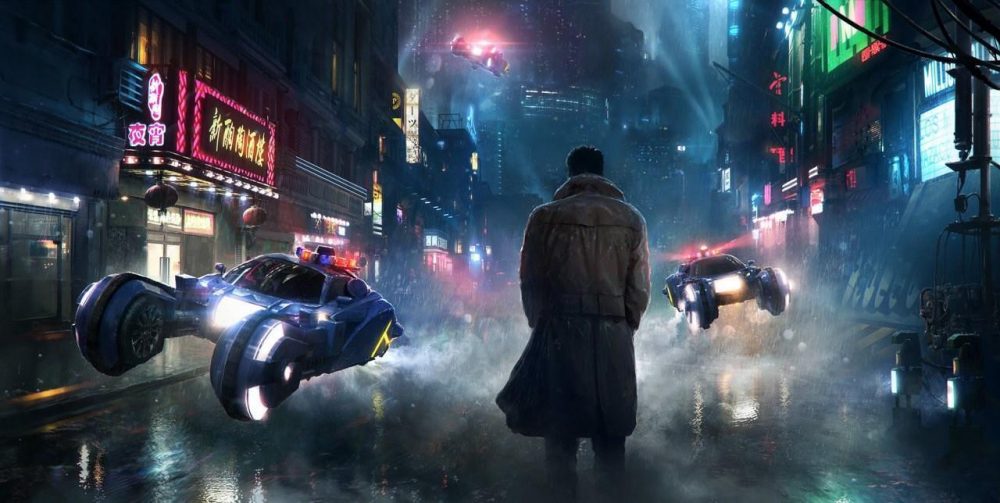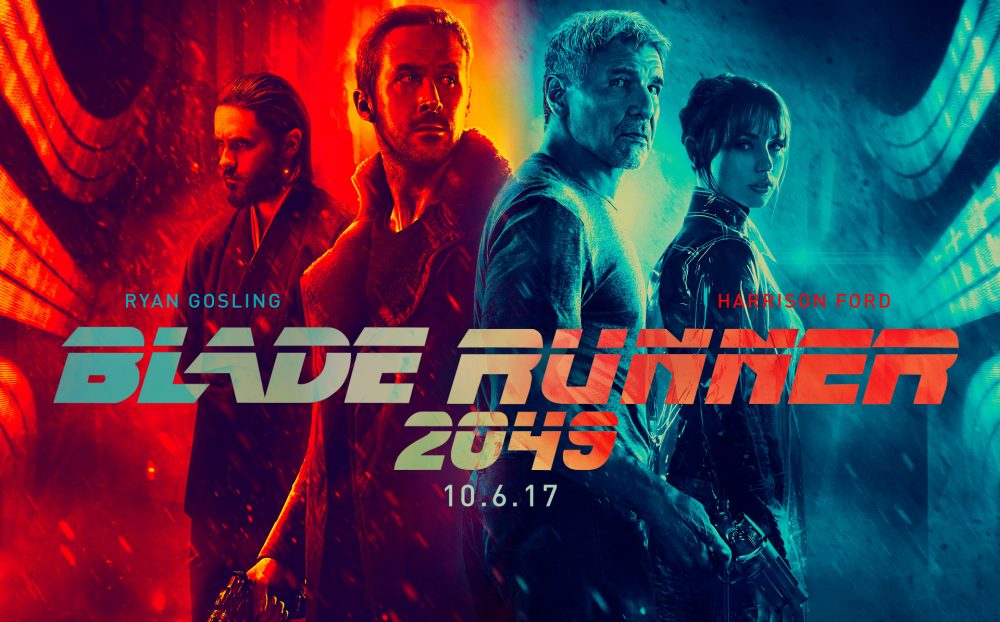Every second of Blade Runner 2049 is a work of art; a triumph; a masterpiece. All 244,500 frames shimmer with polish, style and colour, seeping smoothly from the screen into your brain like a cinematic whiskey. For the visuals alone, you should see this film, but the fact that they also weave together a compelling, original and fitting story for the world created by its 1982 predecessor is nothing short of incredible.
It’s important to preface any discussion of Denis Villeneuve’s Blade Runner 2049 with the warning that this film will not be for everyone, it is not a fast-paced action blockbuster, but a slow-burn, thematic science fiction noir that lingers on captivating moments of humanity as much as it showcases riveting fight scenes. However, saying that, this film is unlike any cinematic experience that has graced theatres years, so purchasing a ticket will not provide for a disappointing experience.
The story follows a replicant or humanoid robot (Ryan Gosling) in the not to distant future that hunts down other androids that have gone rogue and circumvented their original programming. In doing so, he uncovers a conspiracy that unravels everything he has been told to believe, morally blurring the lines between right and wrong; between replicant and human.
The film’s commitment to following the minor, internal struggle of an ‘average Joe’, with a fair larger, overarching narrative forced into the background, seems odd at first, resulting in a difficult to follow first hour. However, as Gosling’s character slowly fades into the bigger picture, and context is provided for his importance, the constricted story structure becomes truly effecting, resulting in a poignant conclusion for his character.

Gosling’s performance is also masterful, his stoicisms perfectly complimenting his sporadic bursts of emotion, somehow more impactful due to their rarity. Harrison Ford’s reprisal of Rick Deckard is also captivating, fully capitalising on the character’s lack of screen time with a truly memorable screen presence. When the two characters collide in the third act their interaction feels genuine, grounding and as breathtaking as the visuals that surround them.
These roof-shattering moments and sequences are carried to an almost transcendental height by the film’s all-encompassing score, composed (unsurprisingly) by Hans Zimmer. Unless the soundtrack is a nostalgic throwback to a culturally entrenched product, it usually does not play into my immediate enjoyment of the film, but 2049’s orchestral beats demand to be heard. Every note, number and crescendo moulds the bleak, futuristic world, adding additional stakes, tension and unspoken truths as the story unfolds. It’s a masterstroke in modern-day composing.
At this stage in the review, I think I’ve used three variations of the word ‘master’ to describe some aspect of this film, and that is not by accident. Villeneuve’s movie raises the cinematic bar for every single technical element, constructing a benchmark for every subsequent science fiction flick to fail to live up to. Blade Runner 2049 marks a cultural landmark for this genre of filmmaking and its significance to cinema’s history will not be fully realised for another 32 years.
★★★★★ (5 stars)
‘Blade Runner 2049’ is currently in theatres.

